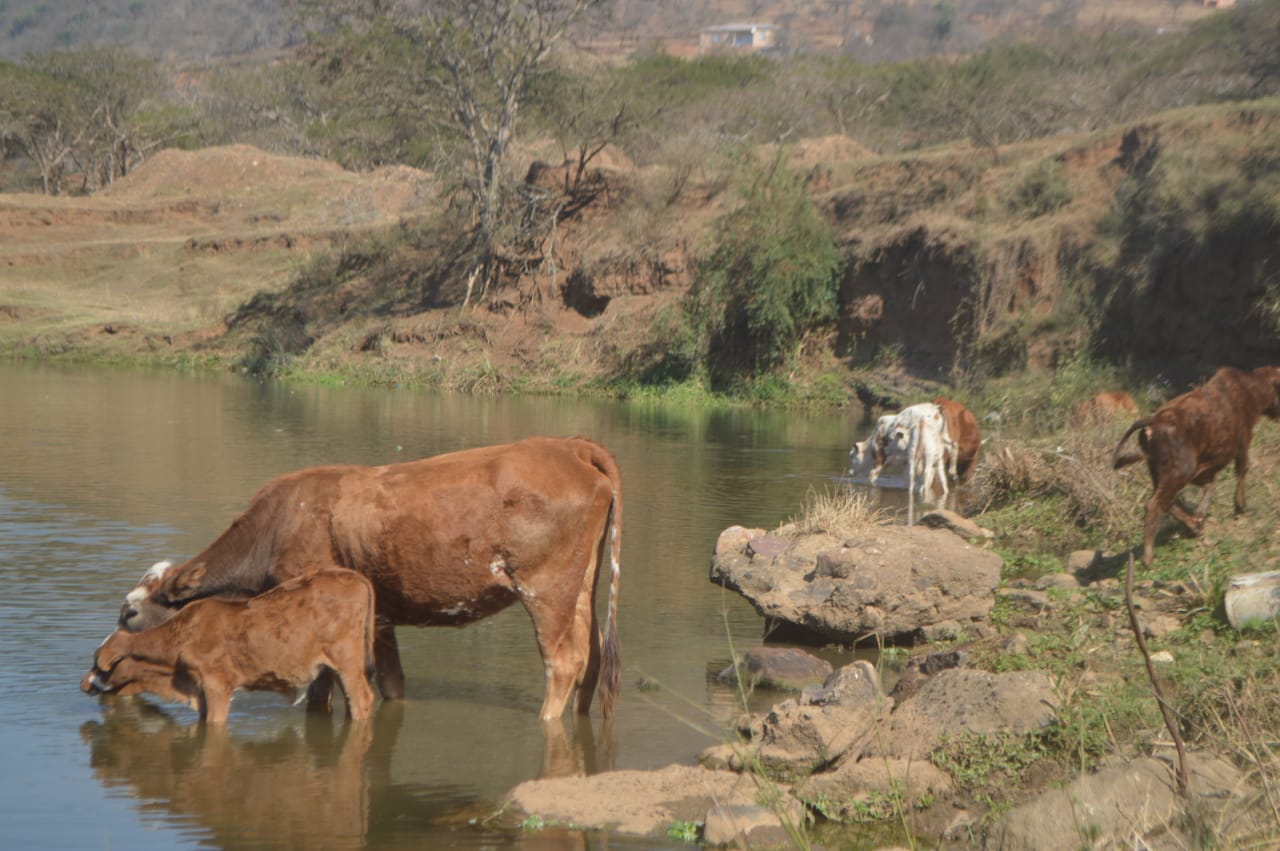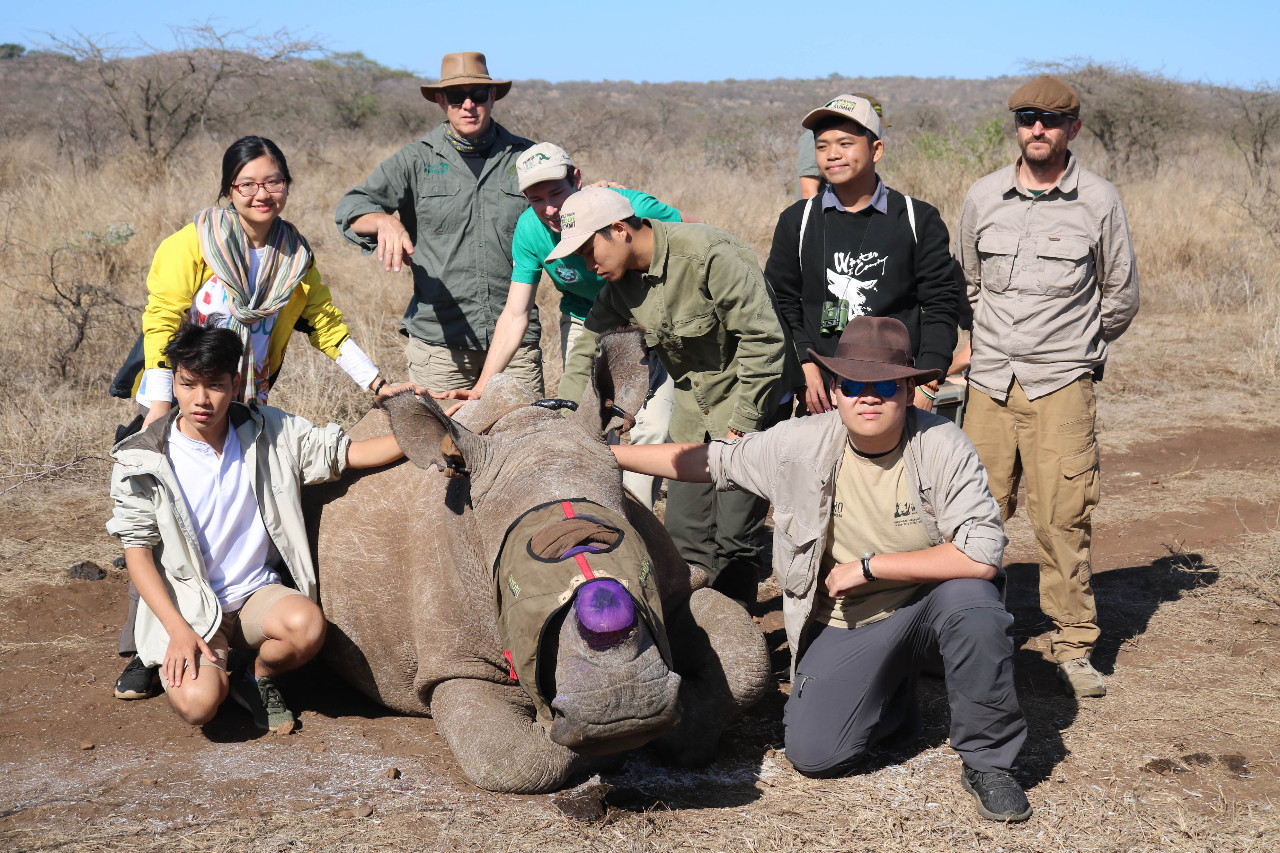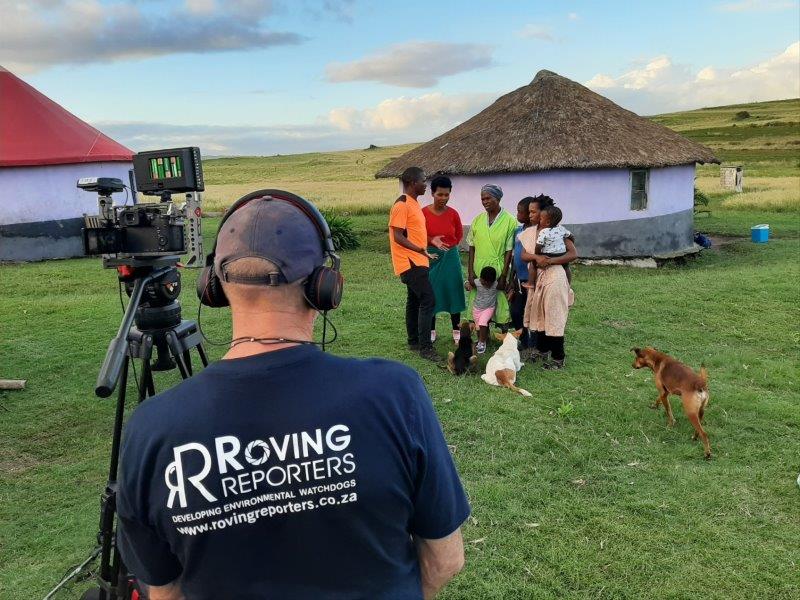Small-scale farmers on the banks of the uMsunduzi River are blaming Pietermaritzburg’s edible oil manufacturer, Willowton Oil, for potential crop failures. They are worried they will not be compensated — and some claim livestock has died as a result of the pollution.
Mlu Mdletshe reports on the aftermath of the disaster.
First published by GroundUp and Daily Maverick
Several hundred thousand fish and other forms of aquatic life have died in the uMsunduzi River following a spillage of 1.6 million litres of vegetable oil and caustic soda on 13 August.
A colossal storage tank at the Willowton factory collapsed, damaging an additional two tanks and causing the bund wall (containment facility) to break.
“While our stormwater system flows into purpose-built containment dams to contain any spillage, they could not withstand the resultant volume,” said Willowton spokesman David Swaiden.
Soapy cauldron
The spill worked its way downstream, turning the Msunduzi and Mgeni rivers into a soapy cauldron of toxicity as far as Inanda Dam, 70km from the plant.
Public warnings were subsequently issued to people not to collect and eat dead fish, let livestock near the water or use it for irrigating crops.
Now people living far downstream fear that their crops will dry out if they are unable to use the river water for irrigation.
Boy dies collecting fish
A 12-year-old herd-boy also drowned in Mboyi in Enkanyezeni village, reportedly while collecting dead fish from the river in spate. This was on Friday, 15 August, not long after Umgeni Water released water from Henley Dam to flush the river. Police in Bishopstowe have confirmed the drowning of Teo Sebetse. The boy is said to be a South African, born to Lesotho parents.
Small-scale farmers worried about their cows
Livestock owners say it has been difficult to keep cattle away from the river and some claim cows have died after drinking soapy, polluted water. But this can’t be confirmed, and some environmentalists are sceptical of these claims.
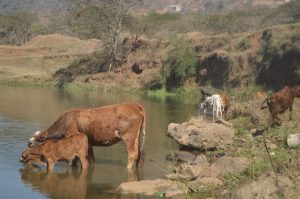
FEATURED IMAGE: While authorities warn that livestock should not drink from the polluted uMsunduzi river, people of KwaXimba say it is almost impossible to stop cattle from going to the river. Photo: Mlu Mdletshe
Although reliable figures are not available and autopsies have yet to be done, in a week-long field trip in the Valley of a Thousand Hills, Roving Reporters met several farmers who demanded that the cattle deaths be investigated.
Leonard Majola, of Mhali in KwaXimba, said he had lost one cow from his herd of 19.
He was unsure whether it had become sick after drinking from the polluted river or whether it had been swept away when the river was in spate.
He said he and other cattle owners in the area received a call from Mboyi, upstream of them, on Friday, August 15, warning that the river was rising. They then hurried to fetch their animals.
‘White cloud’ on river
KwaXimba overlooks the river and Majola and his fellow farmers could see a “white cloud” floating on the surface. The 70-year-old collected his herd, only realising later when counting the animals in his kraal that one was missing.
He said he was calm at the time, expecting it to return, but it never did. He said his herd had continued to drink from the river — and seemed fine. He said he was now more worried that the spill and resultant massive fish kills could put an end to fishing along his stretch of the river for a long time — a sore loss for many, including his family.
“In this household we just love fish. I fish three to four days a week… catching five to ten carp,” he said.
60-year-old Musa Mhlongo, also from Mboyi, said it had been impossible to prevent his cattle drinking from the river.
He and a few other farmers tried to lock their herds in a field, but the cattle consistently escaped and went to the river, he said.
We received other reports of cattle losses and saw a dead calf lying near the river, but none of this could be positively linked to the spill.
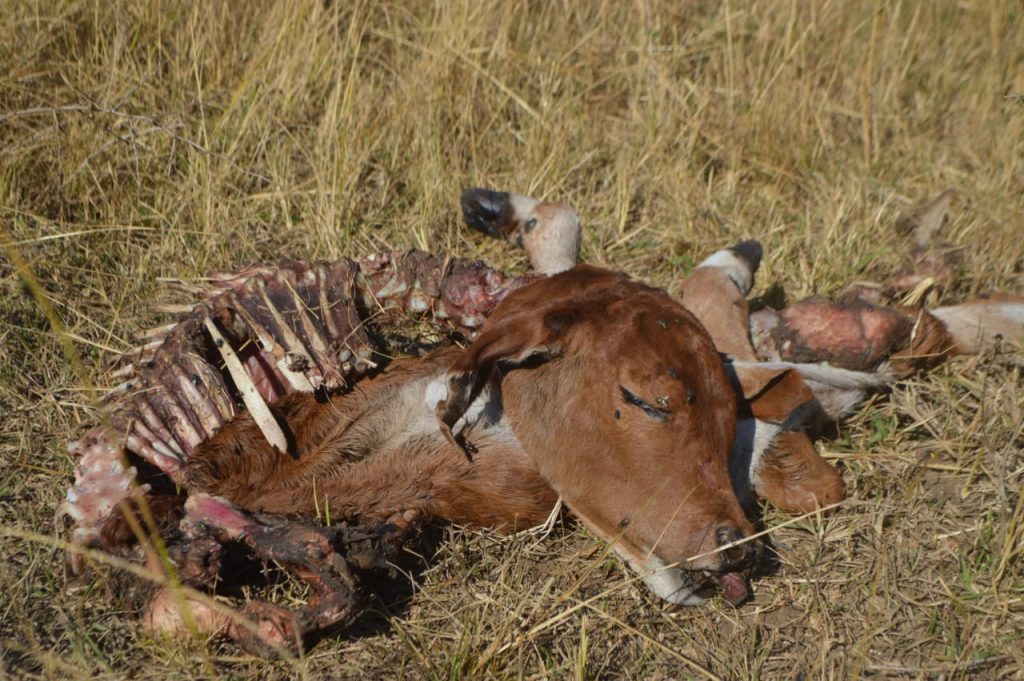
GRISLY: The owner of this dead calf in Mboyi suspects river pollution could have caused its death. Photo: Mlu Mdletshe
Vegetable-growing at risk
Warnings from authorities that polluted river water could pose a threat to crops is also of concern to small-scale farmers who rely on the nutrient-rich waters of the uMsunduzi and Mgeni rivers for irrigation.
Sipho Mbambo grows vegetables for his family and for a feeding scheme that supplies two schools in Mhali, KwaXimba. He said he had now had to switch from using river water to chlorinated drinking water from tanks to irrigate his garden.
But the tanks have to be refilled and this means the water must be trucked in or brought by pipe from a neighbouring home, both at some cost. He said some of his vegetables were already beginning to shrivel after he had switched to using piped water.
He said his cabbages were nowhere near ready to reap and would not survive long without adequate water.

“Cabbages require more water than my other vegetables and the water I have left won’t last me very long,” said Mlambo.
The 63-year-old doubted those responsible for the spill would be held to account.
He said: “What will happen is the white man (Willowton) will pay money to the people who are supposed to be fighting for us and this matter will be buried. That we know.”
Willowton responds
Swaiden said the company’s Community Social Responsibility (CSR) team was investigating all impacts of the pollution in affected communities, including allegations of cattle deaths.
“We received one report that a cow had died due to the water quality. An autopsy was done and a full veterinary report supplied in which it was determined that the animal died from advanced protein energy malnutrition, a common nutrient deficiency seen in winter when grass is nutrient-poor,” said Swaiden.
“The vet went on to further assess many cattle along the river’s edge and none showed any signs of illness or disease.”
Swaiden said the Willowton CSR team was also distributing bottled water to communities, assisted by Gift of the Givers.
“We have also distributed JoJo tanks and bulk water to communities whose livestock have been directly affected,” said Swaiden. “This is an ongoing effort and we remain absolutely committed to assisting the affected communities.”
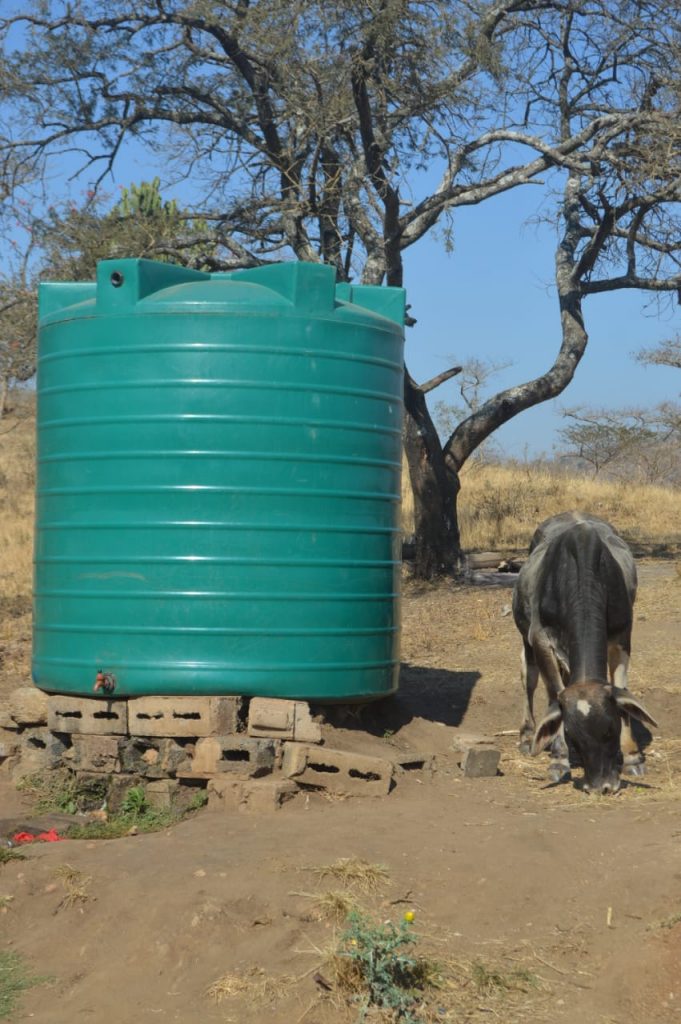
RELIEF: Willowton Oil has installed water tanks for drinking water in eNkanyezi – one of many areas in the Valley of a Thousand Hills badly affected by the pollution spill from its plant. Photo: Mlu Mdletshe
Government response
A spokesperson for the Department of Agriculture has called on people in affected communities to report cases of dead cows so they can be investigated.
The KwaZulu-Natal Department of Economic Development, Tourism and Environmental Affairs said it was working with a multi-disciplinary task team to oversee the river clean-up process, and will in due course, “pronounce on the steps undertaken to rehabilitate the river’s ecosystem and biodiversity”.
“We are exploring all available legal and compliance avenues towards a speedy resolution,” said department spokesman Nathi Olifant. — Additional reporting by Fred Kockott.
Also read: Rush to save KZN’s uMsunduzi river after a disastrous toxic spill.
- Mlu Mdletshe is a Durban University of Technology journalism graduate enrolled on Roving Reporters’ training programme: Developing Environmental Watchdogs.

